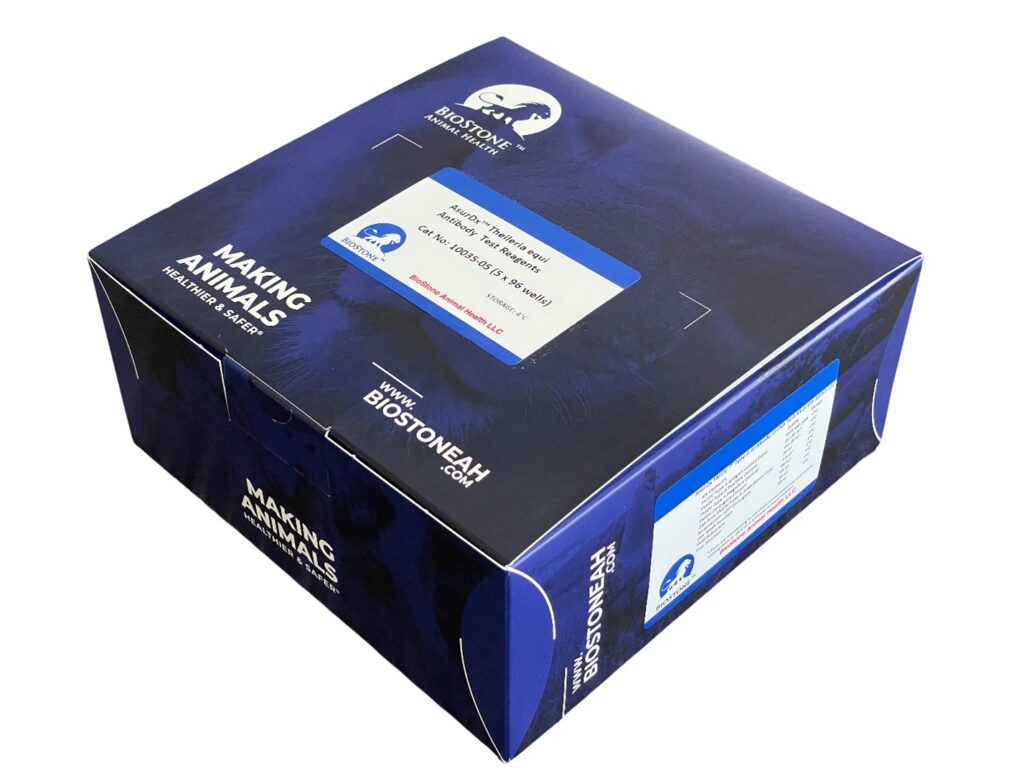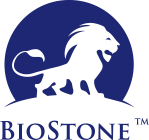AsurDx™ Theileria equi Antibody Test Kit
The AsurDxTM Theileria equi Antibody Test Kitis designed for the detection of horse antibodies specific to Theileria equi (T. equi) in horse serum/plasma.

Feature
- Detects T. equi antibodies of the IgG in horse serum/plasma;
- Procedures last less than 90 minutes;
- Provides a simple, rapid, sensitive and cost-effective enzyme-based immunoassay (ELISA) screening method
*Availability/Distribution: Product is designed and developed by BioStone US Texas headquarter and manufactured/assembled by BioStone oversea subsidiaries or partners. Currently, the product is only available outside of the USA. Regulatory requirements vary by oversea countries; the product may not be available in your geographic area.
Specification
| Method | Competitive ELISA |
| Coated Antigen | T.equi antigen-coated Plate |
| Incubation Time | 90 minutes |
| Storage | At least 12 months |
| Specificity | T. equi horse antibodies |
Order Information
| Catalog Number | 10035-02 | 10035-05 |
| Plates | 2 plates | 5 plates |
| Reactions | 192 | 480 |
| Plate Format | 12 X 8-well strips | 12 X 8-well strips |
About Disease
T. equi was previously designated as Babesia equi (B. equi) but now it is often reclassified as a Theileria. Theileria is a genus of parasites that belongs to the phylum Apicomplexa and is closely related to Plasmodium. T. equi infectioncauses equine piroplasmosis, a tick-borne disease of horses. The clinical signs of equine piroplasmosis include anemia, weight loss and lethargy, often with a chronic history of unthriftness. Other signs, indicative of acute infection, include fever (> 40°C), depression, reduced appetite, pallor, icterus, dyspnoea, petechiation, colic, eyelid and distal limb oedema and incoordination. The chronic disease generally presents variable clinical signs, making the diagnosis difficult. An assessment of serologic identification of T. equi, requires a measurement of antibody to T. equi in serum.
